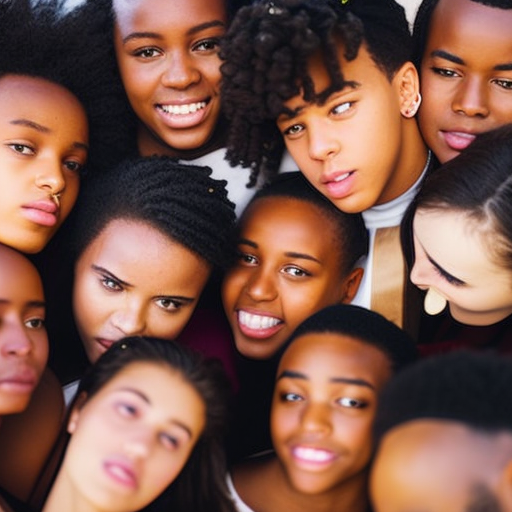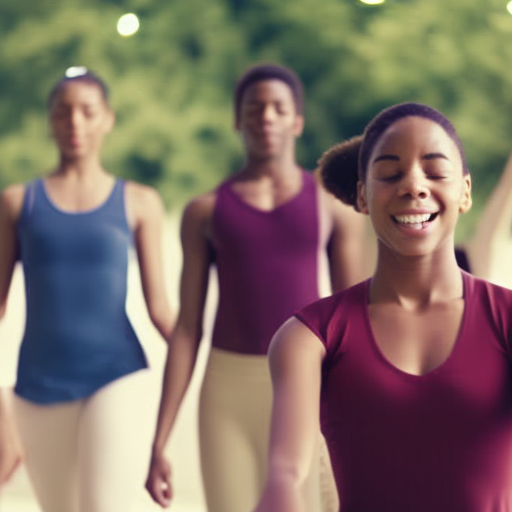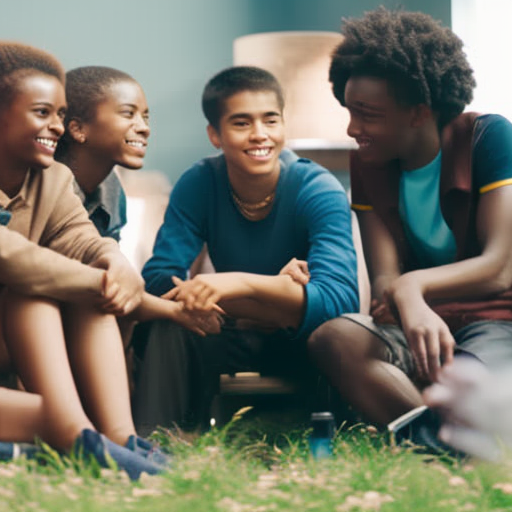"Cherishing Little Steps - A Haven for Baby and Family Journeys"
Teen Body Image and Self-Esteem
Hey there, have you ever felt like a flower wilting under the weight of society’s beauty standards? It’s not easy being a teenager in a world that constantly bombards you with images of what you should look like.
Teen body image and self-esteem are deeply intertwined, and it’s time to address the impact this can have on your sense of self-worth. From the unrealistic portrayal of beauty in the media to the pressure of fitting in on social media, the struggle is real.
But don’t worry, we’re here to help you navigate this tricky terrain. In this guide, we’ll explore the effects of body dissatisfaction, body shaming, and bullying, as well as provide strategies to promote positive body image and build your self-esteem.
Let’s embark on this journey of self-love together.
Key Takeaways
- Media bombardment with flawless images and unrealistic beauty standards contributes to low self-esteem and body dissatisfaction among teenagers.
- Social media platforms present idealized beauty and lead to comparisons, resulting in low self-esteem and negative body image.
- Body dissatisfaction negatively affects self-perception and mental health, leading to decreased self-esteem.
- Strategies to promote positive body image and build self-esteem include practicing self-care, surrounding oneself with body-positive messages, engaging in activities that celebrate unique qualities, and seeking support from friends, family, or professionals.
Unrealistic Beauty Standards and Societal Pressure
When it comes to teen body image and self-esteem, you’re constantly bombarded with unrealistic beauty standards and societal pressure. In today’s world, the media bombards you with images of flawless models and celebrities, setting an unrealistic standard of beauty that’s nearly impossible to achieve. This constant exposure to airbrushed and photoshopped images can lead to unhealthy comparisons and a distorted perception of your own body.
Research has shown that comparing yourself to others, especially in terms of physical appearance, can have detrimental effects on your self-esteem. Constantly measuring yourself against unrealistic standards can lead to feelings of inadequacy, low self-worth, and even body dysmorphia. These negative emotions can follow you into adulthood, affecting your mental and emotional well-being in the long term.
Societal pressure also plays a significant role in shaping your body image. From a young age, you’re bombarded with messages that equate thinness with beauty and success. This pressure can lead to extreme dieting, disordered eating patterns, and even the development of eating disorders. The pressure to conform to societal beauty standards can be overwhelming and can have lasting effects on your self-esteem and overall mental health.
It is important to remember that beauty comes in all shapes, sizes, and forms. Instead of comparing yourself to others, focus on nurturing a positive body image and practicing self-acceptance. Surround yourself with supportive individuals who value you for who you are, not how you look. Remember, you’re more than your physical appearance, and your worth isn’t determined by society’s unrealistic standards.
Impact of Media and Advertising on Body Image

You are bombarded with media and advertising that heavily influence your body image. Everywhere you turn, you are confronted with images of what society deems as the "ideal" body type. Magazines, television shows, social media platforms – they all contribute to the unrealistic beauty standards that can negatively impact your self-esteem. The constant exposure to these images can make you feel inadequate and dissatisfied with your own appearance.
But it’s important to recognize that media influence doesn’t have to be solely negative. In recent years, there has been a growing body positivity movement that aims to challenge these unrealistic beauty standards and promote acceptance of all body types. This movement encourages individuals to embrace their uniqueness and redefine what it means to be beautiful.
To help you understand the impact of media and advertising on body image, let’s take a closer look at some statistics:
| Statistic | Impact |
|---|---|
| 81% of ten-year-olds fear being fat | Creates anxiety and body dissatisfaction |
| 47% of girls in 5th-12th grade | Contributes to low self-esteem and |
| want to lose weight | unhealthy weight control behaviors |
| 40% of boys in middle school | Can lead to the development of eating |
| exercise to increase muscle mass | disorders |
| 95% of dieters regain their weight | Promotes a cycle of dieting and weight |
| within 1-5 years | fluctuations |
These statistics highlight the detrimental effects of media influence on body image. However, it’s important to remember that you have the power to challenge these unrealistic beauty standards and embrace a more positive and inclusive view of yourself. Surround yourself with body-positive messages, engage in self-care activities, and seek support from friends, family, or professionals who can help you navigate these pressures. Remember, you are so much more than your appearance, and your worth should never be determined by societal standards.
Comparison and Social Media Influence

Amidst the constant exposure to media and advertising, the impact of comparison and social media influence on your body image and self-esteem can’t be overlooked. Social comparison plays a significant role in shaping how you perceive yourself and your self-worth.
Here are some key points to consider:
-
Unrealistic standards: Social media platforms often present an idealized version of beauty, showcasing images that are heavily edited and filtered. This can lead to feelings of inadequacy and low self-esteem when comparing yourself to these unrealistic standards.
-
Selective portrayal: People tend to share their best moments on social media, creating a skewed perception of reality. It’s important to remember that everyone has their struggles and insecurities, even if they don’t show it online.
-
Negative self-comparison: Constantly comparing yourself to others can be detrimental to your self-worth. Remember that everyone is unique, and it’s unfair to judge your own worth based on someone else’s appearance or achievements.
-
Validation-seeking behavior: Seeking validation through likes and comments on social media can become an unhealthy habit. Your self-worth shouldn’t depend on external validation, but rather on your own self-acceptance and self-love.
-
Creating a positive online environment: Be mindful of the content you consume and the accounts you follow on social media. Surrounding yourself with body-positive and diverse representations can help boost your self-esteem and promote a healthier body image.
Body Dissatisfaction and Its Effects on Self-Esteem
The impact of body dissatisfaction on your self-esteem is significant, as it can lead to negative self-perception and feelings of inadequacy. In today’s society, there’s a pervasive pressure to conform to unrealistic beauty standards, perpetuated by media and social media platforms. This constant exposure to idealized images can make you feel dissatisfied with your own body, leading to a diminished sense of self-worth.
However, it’s important to remember that your worth isn’t defined by your appearance. The body positivity movement and self-acceptance advocacy have gained momentum in recent years, promoting the idea that all bodies are beautiful and deserving of love and acceptance. Embracing this mindset can help improve your self-esteem and overall well-being.
Instead of focusing on perceived flaws, try to shift your focus towards appreciating your body for all that it does for you. Engage in activities that make you feel good and confident, whether it’s exercising, practicing self-care, or pursuing hobbies you enjoy. Surround yourself with positive influences and supportive individuals who value you for who you are, not just how you look.
Body Shaming and Bullying Among Teenagers

One common issue teenagers face is the prevalence of body shaming and bullying. It’s unfortunate that in today’s society, many young people experience negativity and cruelty directed towards their bodies. This can have a significant impact on their self-esteem and overall well-being. It’s crucial to address this issue and promote a more positive and accepting environment for teenagers. Here are some key points to consider:
-
Body positivity movement: The body positivity movement emphasizes the importance of accepting and loving oneself, regardless of size, shape, or appearance. It encourages individuals to embrace their uniqueness and celebrate their bodies.
-
Negative effects of body shaming: Body shaming can lead to low self-esteem, depression, anxiety, and even eating disorders. It creates a toxic cycle of self-doubt and self-criticism, making it difficult for teenagers to develop a healthy body image.
-
Bullying and its consequences: Bullying based on physical appearance can cause immense emotional pain and trauma for teenagers. It can lead to social isolation, poor academic performance, and a negative outlook on life.
-
Building resilience: Encouraging teenagers to develop resilience is crucial in combatting body shaming and bullying. Teaching them coping strategies, promoting self-care, and fostering supportive relationships can help them navigate these challenges.
-
Importance of self-acceptance: Helping teenagers cultivate self-acceptance is vital. Emphasize that everyone is unique and that true beauty comes from within. Encourage them to focus on their strengths and talents rather than their physical appearance.
The Role of Peers and Family in Shaping Body Image

Your peers and family play a significant role in shaping your body image. The opinions and behaviors of those around you can greatly influence how you perceive yourself and your body. Peers, in particular, have a powerful impact on body image during adolescence. As teenagers, you are constantly comparing yourselves to your friends and classmates, trying to fit in and be accepted. This can lead to feelings of insecurity and a distorted perception of your own body.
To illustrate this point, let’s take a look at the following table:
| Peers Influence | Family Support |
|---|---|
| Comparing yourself to others can lead to negative body image | Encouragement and acceptance from family can promote positive body image |
| Social media and peer pressure can contribute to body dissatisfaction | Family values and beliefs about body image can shape your perception of yourself |
| Positive peer support can boost self-esteem and body confidence | Family communication and open discussions about body image can foster a healthy self-image |
| Negative comments or teasing from peers can damage self-esteem | Family modeling healthy attitudes towards body image can have a lasting impact |
It is important to surround yourself with positive influences and seek support from your family. Having a strong support system can help counteract negative peer influences and promote a healthy body image. Remember, your worth is not determined by your appearance, but by the unique qualities and talents that make you who you are.
The Link Between Body Image and Mental Health

Having a negative body image can have detrimental effects on your mental health. It’s important to understand the link between body image and mental health, as well as the impact of body dissatisfaction on self-esteem. Here are five key points to consider:
-
Body image and mental health are closely intertwined. Research has shown that individuals who’ve negative body image are more likely to experience symptoms of anxiety, depression, and low self-esteem.
-
Body dissatisfaction can lead to poor mental health outcomes. When you constantly compare yourself to unrealistic beauty standards or feel dissatisfied with your own appearance, it can take a toll on your mental well-being.
-
Low self-esteem can be a consequence of negative body image. When you don’t feel confident in your own skin, it can affect your overall self-worth and how you perceive yourself.
-
The media plays a significant role in shaping body image ideals. Constant exposure to images of unrealistic beauty standards can contribute to body dissatisfaction and negatively impact mental health.
-
Building a positive body image is crucial for mental well-being. It involves accepting and appreciating your body, focusing on your strengths and abilities, and surrounding yourself with supportive and positive influences.
Eating Disorders and Their Connection to Body Image
Eating disorders can significantly impact your body image and self-esteem. When struggling with an eating disorder, such as anorexia nervosa, bulimia nervosa, or binge eating disorder, your perception of your body becomes distorted. This distortion can lead to body dysmorphia, where you obsess over perceived flaws and become preoccupied with your appearance. It’s important to understand that these disorders aren’t simply about wanting to be thin or attractive. They’re complex mental health conditions that are influenced by a variety of factors, including genetics, psychological factors, and societal pressures.
When you have an eating disorder, it can feel like your entire self-worth is tied to your body and how you look. This constant focus on your appearance can lead to a negative body image, where you feel ashamed, disgusted, or unhappy with your body. This negative body image can further fuel your eating disorder, creating a vicious cycle of destructive thoughts and behaviors.
It’s crucial to seek help if you’re struggling with an eating disorder and body dysmorphia. Treatment options, such as therapy, nutrition counseling, and support groups, can help you address the underlying issues and develop a healthier relationship with your body.
Strategies to Promote Positive Body Image

To promote positive body image, you can start by focusing on nurturing and appreciating your unique qualities and strengths. It’s important to remember that everyone is different, and that’s what makes each of us special.
Here are some strategies that can help you cultivate a positive body image:
-
Engage in positive self-talk: Be mindful of the way you talk to yourself and challenge negative thoughts about your body. Replace them with positive affirmations and remind yourself of your worth beyond physical appearance.
-
Practice self-care: Take care of your body by engaging in activities that make you feel good, such as exercise, getting enough sleep, and eating nutritious foods. Treat yourself with kindness and compassion.
-
Surround yourself with positive influences: Surround yourself with people who appreciate and accept you for who you are. Seek out role models who promote body acceptance and diversity.
-
Limit exposure to negative media: Be mindful of the media you consume and its impact on your body image. Unfollow social media accounts that make you feel insecure and seek out content that celebrates diverse body types.
-
Seek professional help if needed: If negative body image persists and affects your daily life, consider reaching out to a therapist or counselor who can provide guidance and support.
Building Self-Esteem and Resilience in Teenagers

To build self-esteem and resilience in teenagers, focus on developing a strong sense of self-worth and the ability to bounce back from challenges. Building confidence and overcoming insecurities are essential for teenagers to navigate the complexities of adolescence and thrive in their personal and social lives.
One effective way to build confidence is through positive affirmations. Encourage teenagers to identify and celebrate their strengths and accomplishments. Remind them that they’re unique and valuable individuals with their own set of talents and qualities. By recognizing their worth, they can develop a strong sense of self and believe in their abilities.
Another important aspect of building self-esteem is helping teenagers overcome insecurities. Encourage open and honest communication about their fears and insecurities. Provide a safe and supportive environment where they can express themselves without judgment. Help them challenge negative self-talk by reframing negative thoughts into positive ones.
Resilience is also crucial for teenagers to overcome challenges and setbacks. Teach them problem-solving skills and encourage them to view setbacks as opportunities for growth. Encourage them to seek support from friends, family, or trusted adults when facing difficulties. By developing resilience, teenagers can bounce back from adversity and develop a stronger sense of self.
Encouraging Healthy Body Image Conversations

Start conversations about healthy body image with teenagers by fostering open and positive discussions. It’s important to create a safe space where they feel comfortable expressing their thoughts and concerns.
Here are some tips to encourage healthy body image conversations with teenagers:
-
Be a good listener: Give your full attention and validate their feelings. Let them know that their thoughts and experiences are valid.
-
Promote body positivity: Encourage them to celebrate their unique qualities and strengths. Help them understand that beauty comes in all shapes and sizes.
-
Educate about media literacy: Discuss the unrealistic beauty standards portrayed in the media and how they can impact self-perception. Teach them to critically analyze media messages.
-
Encourage self-acceptance: Emphasize the importance of self-love and acceptance. Help them develop a positive relationship with their bodies.
-
Model healthy behavior: Be a positive role model by practicing self-acceptance and body positivity yourself. Show them that it’s okay to embrace and love your body.
Resources and Support for Teens Struggling With Body Image

Explore available resources and support for teens struggling with body image to find the help they need. It’s important to remember that you aren’t alone in this journey. There are support groups specifically designed for teens who are facing body image challenges. These groups provide a safe and understanding space where you can share your experiences, learn from others, and receive encouragement. Being able to connect with individuals who are going through similar struggles can be incredibly comforting and empowering.
In addition to support groups, seeking professional counseling can also be highly beneficial. A trained therapist can help you navigate the complexities of body image issues, guiding you towards a healthier and more positive mindset. They can provide you with tools and strategies to improve your self-esteem and develop a healthier relationship with your body. Professional counselors have the expertise to address the underlying factors contributing to body image concerns and can offer personalized guidance tailored to your specific needs.
Frequently Asked Questions
How Can Parents Help Their Teenagers Develop a Positive Body Image?
You can help your teenager develop a positive body image by being aware of your own words and actions. Encourage them to embrace the body positivity movement and emphasize their unique qualities and strengths.
What Are Some Effective Strategies to Combat Body Shaming and Bullying Among Teenagers?
You can combat body shaming and bullying among teenagers by promoting the body positivity movement and teaching them the impact of peer pressure. Encourage self-acceptance and empathy, and provide resources for support.
How Does Social Media Contribute to Body Dissatisfaction Among Teenagers?
When you spend time on social media, you may be exposed to negative influences that contribute to body dissatisfaction. Seeing idealized images and comparing yourself to others can impact your self-esteem and body image.
Are Eating Disorders Solely Caused by Negative Body Image?
Eating disorders can be caused by various factors, not just negative body image. Societal standards of beauty and unrealistic expectations can contribute to the development of these disorders. It’s important to understand the complex nature of this issue.
Where Can Teenagers Find Resources and Support for Body Image Issues?
You can find support and resources for body image issues in online communities and through your school’s counseling services. They provide a safe space to connect with others who understand and offer guidance to help improve your self-esteem.
Conclusion
You aren’t alone in your struggle with body image and self-esteem. The unrealistic beauty standards and societal pressures placed on teenagers can be overwhelming, but there are strategies and resources available to help you navigate these challenges.
By promoting positive body image, building self-esteem, and having open conversations, we can empower ourselves and others to embrace our uniqueness and cultivate resilience.
Remember, you’re deserving of love and acceptance just as you are.



Undoubtedly, there is a great deal to learn on this topic. I agree with everything you said. It was all very nicely said. I loved every quote, and I appreciate you sharing the information. Continue inspiring and sharing with others.